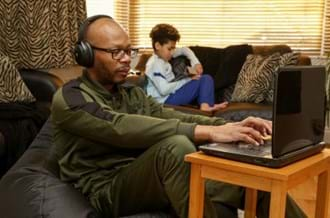Five hopes for children's mental health
Five hopes for children's mental health

Professor Tamsin Ford
Professor of Child and Adolescent Psychiatry at the University of Cambridge - Tamsin is Research Advisor at Place2Be. She is an internationally renowned Child Psychiatric Epidemiologist who researches the organisation, delivery, and effectiveness of services and interventions for children and young people’s mental health.

Dr Ariadna Albajara Saenz
Wiener-Anspach Foundation Postdoctoral Fellow
Professor Tamsin Ford and Dr Ariadna Albajara Saenz, of the Child and Adolescent Resilience and Mental Health Group at The University of Cambridge’s Department of Psychiatry, share their hopes for improving children’s mental health.
Government data published at the end of 2021 sadly show increasing mental health conditions among children and young people, particularly since the COVID-19 pandemic. While we have evidence-based treatments for many mental health conditions, and the benefits of early intervention are well established, we know from our work here at the University of Cambridge and our partners that many children and young people do not seek help or are not able to access support. Receiving the right mental health care depends on the interplay of individual, environmental and structural factors, such as age, socio-economic status or availability of services.
In addition, austerity and now the COVID-19 crisis have reduced access to mental health support normally accessible through schools and communities. Recent research suggests several strategies that could improve access to support for young people experiencing mental health difficulties.
- Improve young people’s knowledge of mental health and reduce stigma. Perceived stigma, and not realising that their struggles relate to poor mental health, are frequent barriers to seeking professional help. The Dunedin birth cohort study – a study on life-course trajectories of mental health disorders – shows that more than 85% of adults have experienced a mental health condition by middle age. However, many people still consider those with poor mental health to be “other”. Compulsory mental health and wellbeing education from an early age could promote mental health, prevent mental ill-health and encourage those who struggle to seek help earlier because they understand what they are experiencing and know where and how to seek support. In addition, easy access to high-quality information and support in ways that engage young people, such as social media, would improve visibility and encourage engagement. Key topics should include protecting your mental health (such as the “5 steps to mental wellbeing”), conflict resolution, problem-solving, and stress management.
- Build an environment that promotes and protects mental health. Bullying happens in all schools from time to time but is probably one of the most manageable public mental health risk factors, with impacts in childhood and adulthood for both bullies and perpetrators. Whole school approaches are highly effective but only if properly implemented and a positive and inclusive school climate is vital to support the mental health of both pupils and staff. Parents and caregivers have an essential role in the wellbeing of all children, and in seeking mental health support if needed. Easy access to parenting courses is crucial, as is accessible information about all mental health issues and the process of seeking help. We must also target stigmatising attitudes towards parents, so they do not feel dismissed or blamed. Teacher classroom management programmes can promote children’s mental health and improve classroom behaviour and concentration, particularly for those who are struggling.
- Systematically identify at-risk individuals early and provide easy access to evidence-based interventions. Improved access to early intervention should be a priority considering the high level of persistence of mental health disorders if not appropriately addressed. For example, mental health improvements for children attending counselling at school can persist for two years, with cost-savings to schools that way surpass the initial investment.
- Use virtual services when appropriate. Some children and adolescents are not able to access virtual consultations or other digital services, for instance in the context of socio-economic difficulties and digital exclusion. However, the option of mental health service delivery via phone, video conference or text increases appointment flexibility, reduces geographical barriers and offers options for young people who prefer to seek help without involving an adult.
- Integrate mental health services to settings where families frequently go (e.g. schools, GP surgeries and youth centres) to minimise structural and logistical barriers, such as time off work/school or difficult and expensive journeys. Such integration can normalise and destigmatise the use of mental health services while making them more visible and accessible. This must be in addition to, rather than instead of, specialist mental health services, given the increased number of children and young people with mental health conditions. We also need to improve collaboration between these settings, and to provide more training and support for primary health care practitioners such as GPs, school nurses and health visitors, as well as school staff, who often feel out of their depth in relation to mental health issues.
Place2Be’s Children’s Mental Health Week is a great initiative to shine a spotlight on the need for more focus and investment in supporting children’s emotional wellbeing. Our five hopes for children‘s mental health will need local and national champions in all sectors, but could make a real difference to children, who, to quote Neil Postman:
*The Disappearance of Childhood (1982)
News & blogs

Place2Be online parenting course now available to organisations
Place2Be's online parenting course helps working parents and carers feel better equipped to manage their parenting journey.
Read more
Three charities launch wellbeing video for young carers
Three charities have joined forces to launch a new video aimed at fostering the wellbeing and creativity of young carers.
Read more
“Know Yourself, Grow Yourself”: A look back at Children’s Mental Health Week 2025
During Children’s Mental Health Week 2025, we encouraged people to embrace self-awareness and explore what it means to them.
Read more



